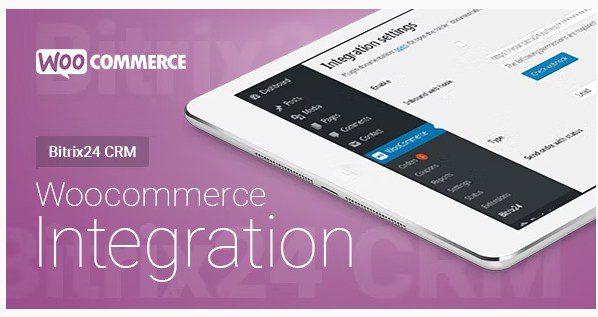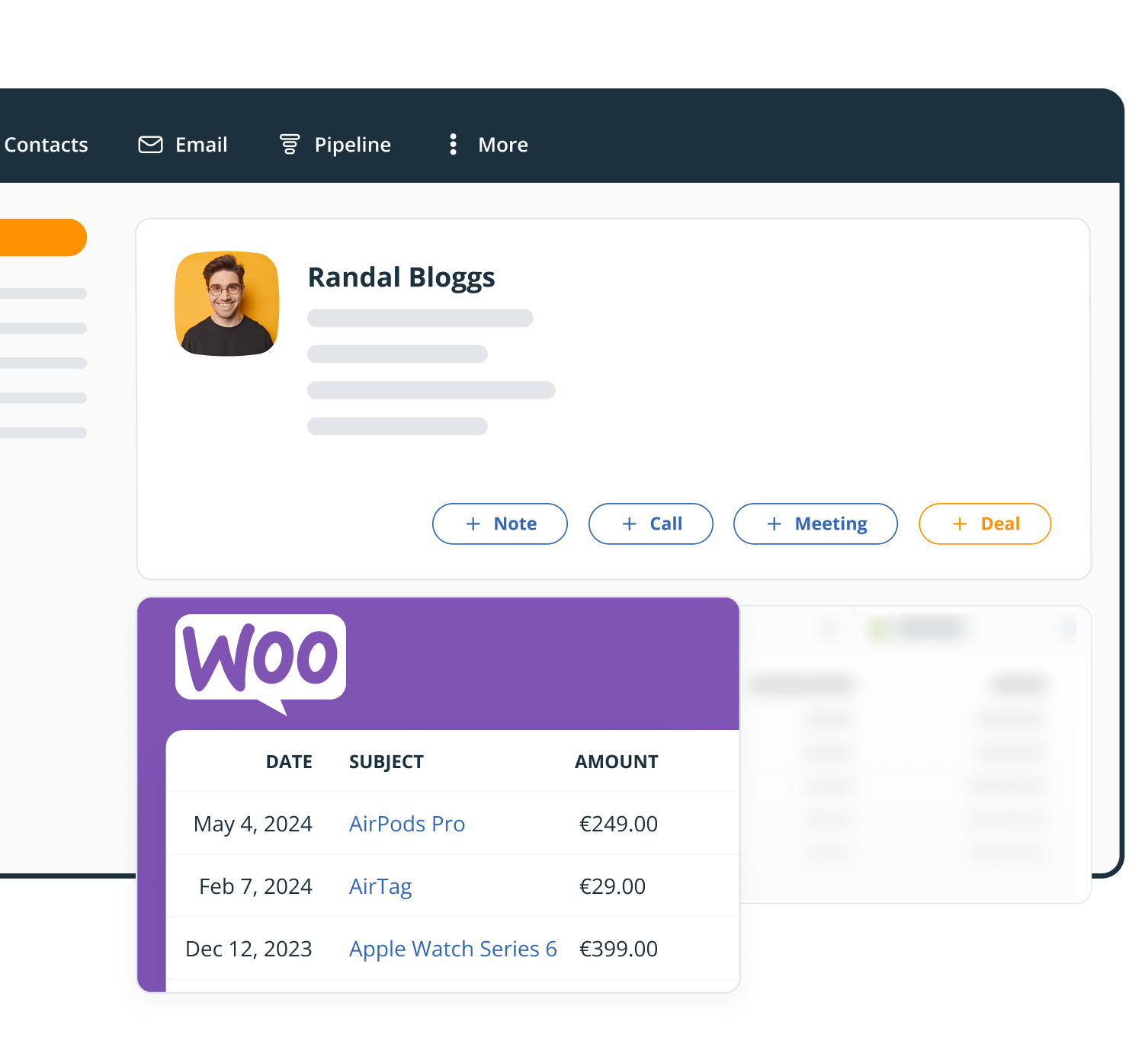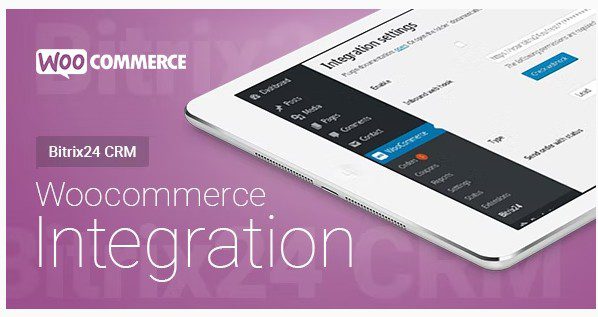
CRM Integration with WooCommerce: Supercharge Your E-commerce Business
In today’s fiercely competitive e-commerce landscape, businesses need to leverage every advantage to stand out from the crowd. One of the most effective ways to gain a competitive edge is by integrating a Customer Relationship Management (CRM) system with your WooCommerce store. This powerful combination can unlock a wealth of benefits, from enhanced customer insights and personalized experiences to streamlined operations and increased sales.
What is CRM and WooCommerce?
-
CRM (Customer Relationship Management): A CRM system is a technology that helps businesses manage and analyze customer interactions and data throughout the customer lifecycle. The goal is to improve customer relationships, assist in customer retention, and drive sales growth. CRM systems typically include features for contact management, lead management, sales automation, marketing automation, and customer service.
-
WooCommerce: WooCommerce is a popular open-source e-commerce platform built on WordPress. It allows businesses to easily create and manage online stores, sell products and services, process payments, and handle shipping. WooCommerce is known for its flexibility, scalability, and extensive ecosystem of plugins and extensions.
Why Integrate CRM with WooCommerce?
Integrating your CRM with WooCommerce offers a multitude of benefits that can significantly impact your e-commerce business:
-
Enhanced Customer Insights:
- Unified Customer Data: Integration centralizes customer data from WooCommerce, including purchase history, order details, shipping information, and product reviews, into your CRM system.
- Comprehensive Customer Profiles: By combining WooCommerce data with CRM data, such as demographics, interests, and communication preferences, you can create comprehensive customer profiles that provide a 360-degree view of each customer.
- Data-Driven Decision Making: With access to rich customer insights, you can make informed decisions about marketing campaigns, product development, customer service, and overall business strategy.
-
Personalized Customer Experiences:
- Targeted Marketing: CRM data enables you to segment your customers based on various criteria, such as purchase behavior, demographics, and interests. This allows you to create highly targeted marketing campaigns that resonate with specific customer segments.
- Personalized Product Recommendations: By analyzing customer purchase history and browsing behavior, you can provide personalized product recommendations that increase the likelihood of conversion.
- Personalized Customer Service: With access to a customer’s complete history, customer service representatives can provide personalized and efficient support, leading to increased customer satisfaction.
-
Streamlined Operations:
- Automated Data Entry: Integration eliminates the need for manual data entry, saving time and reducing the risk of errors. Customer data from WooCommerce is automatically synced to your CRM system.
- Automated Workflows: You can automate various tasks and processes, such as sending welcome emails to new customers, following up on abandoned carts, and triggering marketing campaigns based on customer behavior.
- Improved Collaboration: Integration facilitates collaboration between different teams, such as sales, marketing, and customer service, by providing a shared view of customer data.
-
Increased Sales:
- Improved Lead Generation: By tracking customer interactions and behavior on your WooCommerce store, you can identify potential leads and nurture them through targeted marketing campaigns.
- Increased Conversion Rates: Personalized product recommendations, targeted marketing campaigns, and streamlined checkout processes can lead to increased conversion rates.
- Improved Customer Retention: By providing personalized customer service and building strong customer relationships, you can increase customer retention and drive repeat sales.
How to Integrate CRM with WooCommerce:
There are several ways to integrate your CRM with WooCommerce:
-
CRM Plugins for WooCommerce:
- Many CRM providers offer dedicated plugins for WooCommerce that simplify the integration process. These plugins typically provide seamless data synchronization, automated workflows, and other advanced features.
- Examples of popular CRM plugins for WooCommerce include:
- HubSpot for WooCommerce
- Zoho CRM for WooCommerce
- Salesforce Connector for WooCommerce
- WP ERP
- Jetpack CRM
-
Third-Party Integration Platforms:
- Third-party integration platforms, such as Zapier and Automate.io, allow you to connect WooCommerce with a wide range of CRM systems and other applications.
- These platforms use a visual interface to create automated workflows between different applications, making it easy to transfer data and trigger actions.
-
Custom Integration:
- If you have specific integration requirements that are not met by plugins or integration platforms, you can opt for a custom integration.
- This involves working with a developer to build a custom solution that connects your WooCommerce store with your CRM system.
Key Considerations When Choosing a CRM for WooCommerce:
When selecting a CRM for your WooCommerce store, consider the following factors:
- Integration Capabilities: Ensure that the CRM offers seamless integration with WooCommerce, either through a dedicated plugin or a third-party integration platform.
- Features: Choose a CRM that offers the features you need to manage your customer relationships, such as contact management, lead management, sales automation, and marketing automation.
- Scalability: Select a CRM that can scale with your business as it grows.
- Pricing: Compare the pricing plans of different CRM systems and choose one that fits your budget.
- Ease of Use: Opt for a CRM that is easy to use and navigate, so that your team can quickly adopt it.
- Customer Support: Ensure that the CRM provider offers reliable customer support in case you encounter any issues.
Best Practices for CRM Integration with WooCommerce:
To maximize the benefits of CRM integration with WooCommerce, follow these best practices:
- Plan Your Integration: Before starting the integration process, define your goals and objectives. Determine what data you want to sync, what workflows you want to automate, and what metrics you want to track.
- Clean Your Data: Ensure that your customer data in both WooCommerce and your CRM system is clean and accurate. This will help to avoid errors and ensure that your integration works smoothly.
- Test Your Integration: Thoroughly test your integration after it is set up to ensure that data is being synced correctly and that workflows are functioning as expected.
- Train Your Team: Provide training to your team on how to use the integrated CRM system. This will help them to leverage the new tools and processes effectively.
- Monitor Your Results: Regularly monitor your CRM integration to track its performance and identify areas for improvement.
Conclusion:
Integrating your CRM with WooCommerce is a strategic investment that can significantly enhance your e-commerce business. By centralizing customer data, personalizing customer experiences, streamlining operations, and increasing sales, CRM integration can help you gain a competitive edge and achieve your business goals. By carefully selecting a CRM that meets your needs and following best practices for integration, you can unlock the full potential of this powerful combination.

